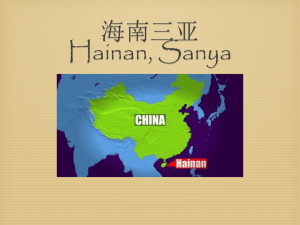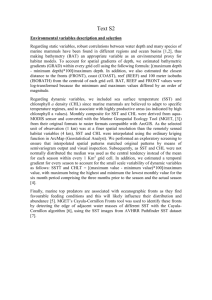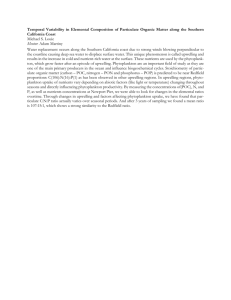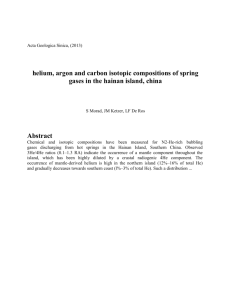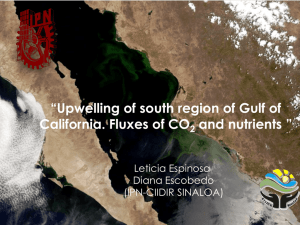Formation and structure of upwelling fronts off eastern Hainan
advertisement
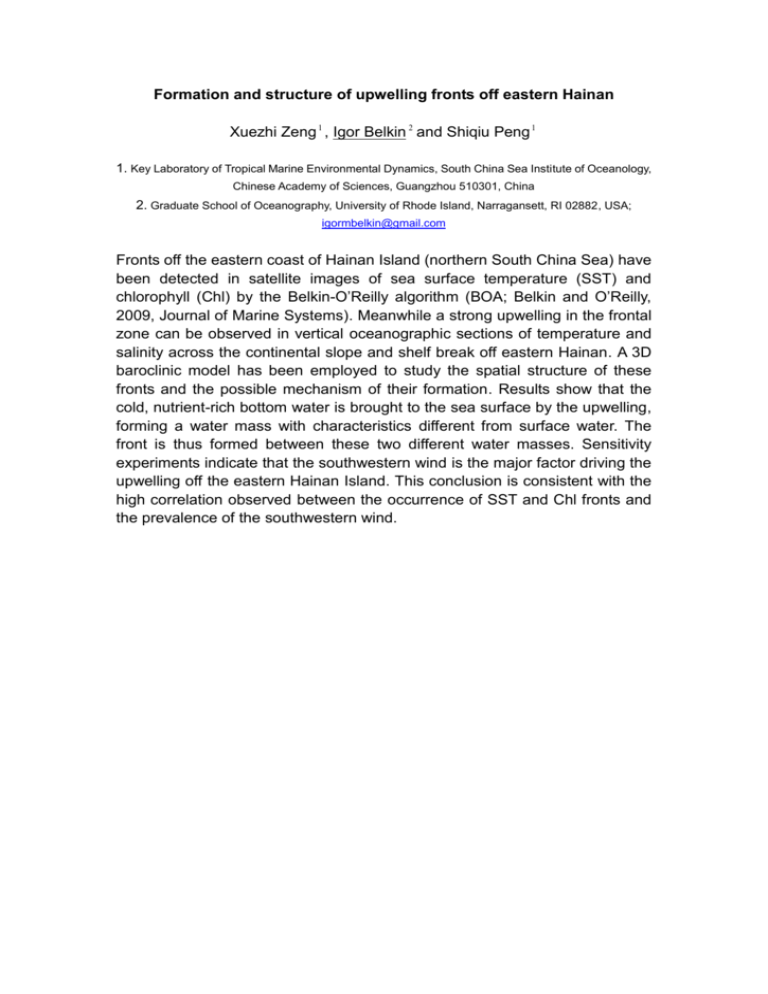
Formation and structure of upwelling fronts off eastern Hainan Xuezhi Zeng 1 , Igor Belkin 2 and Shiqiu Peng 1 1. Key Laboratory of Tropical Marine Environmental Dynamics, South China Sea Institute of Oceanology, Chinese Academy of Sciences, Guangzhou 510301, China 2. Graduate School of Oceanography, University of Rhode Island, Narragansett, RI 02882, USA; igormbelkin@gmail.com Fronts off the eastern coast of Hainan Island (northern South China Sea) have been detected in satellite images of sea surface temperature (SST) and chlorophyll (Chl) by the Belkin-O’Reilly algorithm (BOA; Belkin and O’Reilly, 2009, Journal of Marine Systems). Meanwhile a strong upwelling in the frontal zone can be observed in vertical oceanographic sections of temperature and salinity across the continental slope and shelf break off eastern Hainan. A 3D baroclinic model has been employed to study the spatial structure of these fronts and the possible mechanism of their formation. Results show that the cold, nutrient-rich bottom water is brought to the sea surface by the upwelling, forming a water mass with characteristics different from surface water. The front is thus formed between these two different water masses. Sensitivity experiments indicate that the southwestern wind is the major factor driving the upwelling off the eastern Hainan Island. This conclusion is consistent with the high correlation observed between the occurrence of SST and Chl fronts and the prevalence of the southwestern wind.
